Did you know that Passau is like the Pittsburgh of Germany? Don’t miss out on the many fun things to do when you visit Passau! When we started a river cruise, we loved exploring this old city.
In 2021, Passau became part of the newly inscribed “Frontiers of the Roman Empire – The Danube Limes (Western Segment)” UNESCO World Heritage Site. So yet another reason to visit this historic city.
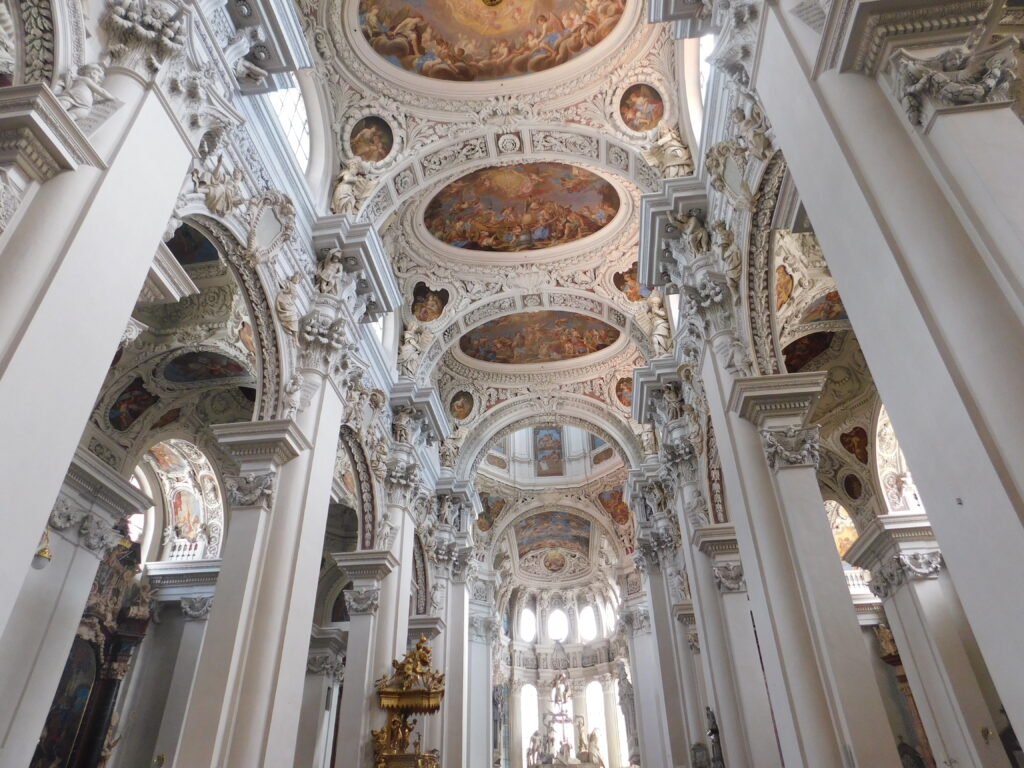
Disclosure: This post might contain affiliate links. If you buy through one of these links, it will not cost you anything extra, but we might get a small commission. Thank you for supporting us. To learn more, please read our full affiliate disclaimer page.
Table of contents
Passau: the Pittsburgh of Germany
Why would Passau also be called the Pittsburgh of Germany? Read on and find out. It might help you win Jeopardy some day.
Skip the history lesson and go straight to Top Things To Do when you visit Passau.
Cities of Three Rivers (Important Location)
When you look at a map, you will notice that both Passau and Pittsburgh have a very strategic location on the confluence of three rivers. Subsequently, both are fittingly nicknamed “The City of Three Rivers”.
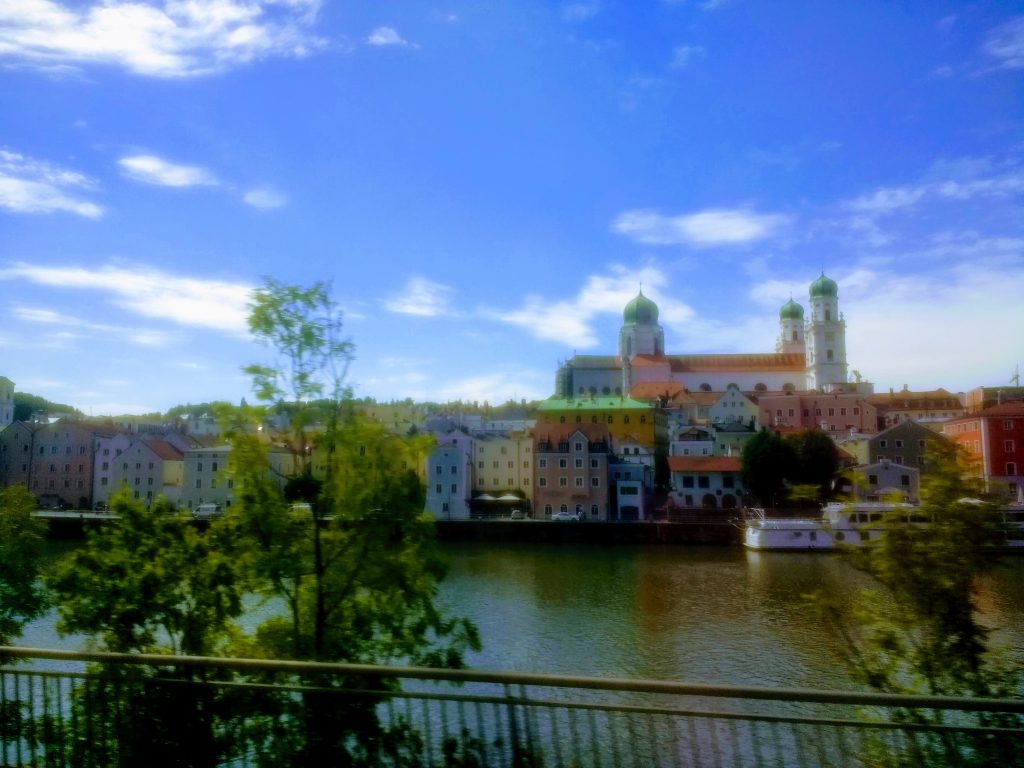
Passau is a port town in South East Germany, in Bavaria. The town is located where the green Inn, the black Ilz and the blue Danube meet and such is a popular stop for European river cruises.
Pittsburgh similarly is a port town in Pennsylvania, at another meeting place of three rivers (The Allegheny, Monongahela, and Ohio). They even named a stadium after their three rivers. (Three Rivers Stadium) In 2001 they imploded that stadium and replaced it with Heinz Field (yup, another German connection)
Pittsburgh has a long German history
Surprisingly, according to the U.S. Census of 2000, more people in the Pittsburgh area claim German heritage than any other. Even today, part of Pittsburgh is still known as Deutchtown (German town). Find out more about Germans in Pittsburgh in Germans Find Pittsburgh to be Wunderbar!
History of Passau
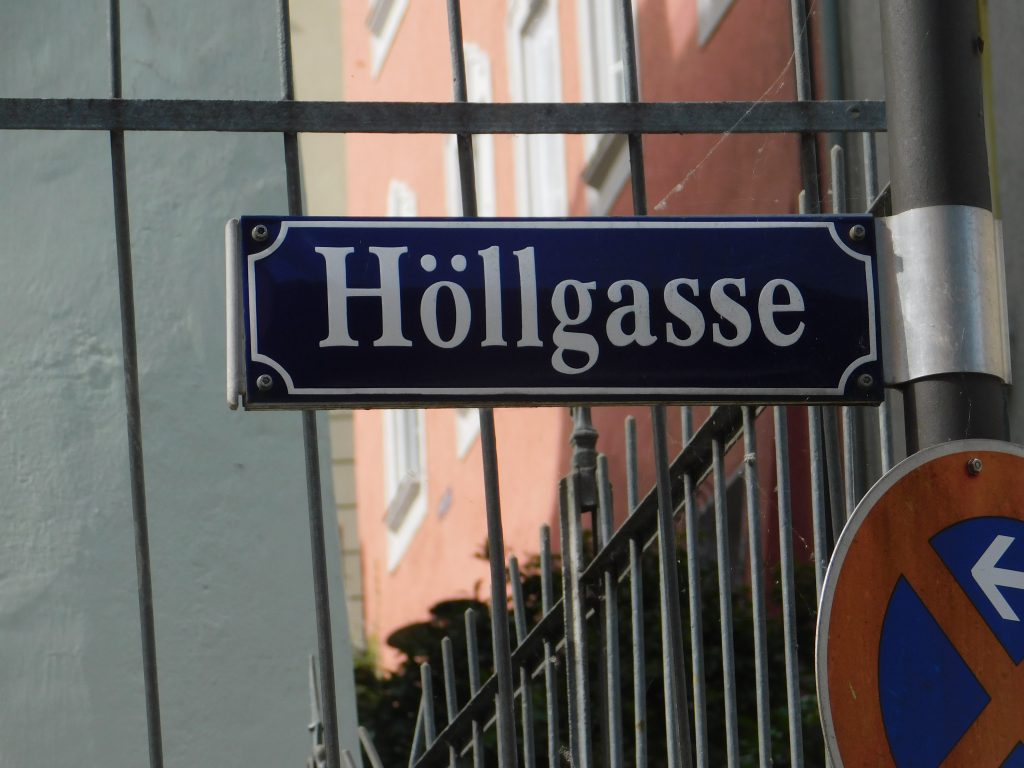
Because of its strategic location, Passau has a rich history. In the second century BC, the Romans pushed the Gallic population out of Northern Italy and they established a new capital here. It took only a few centuries before the Romans overtook them and established a Roman colony called Batavis.
In 739 A.D. Boniface, an English monk, founded the diocese of Passau, which was the largest diocese of the German Kingdom/Holy Roman Empire. For almost a millennium, the catholic church dominated. Economically, Passau had limited natural resources, and therefore trading salt emerged as a perfect way to take advantage of its location. They imported salt from the alpine salt mines around Salzburg as early as the pre-Christian ages, and it continued to grow in medieval times. The salt was transported downstream the Inn along with other expensive goods.
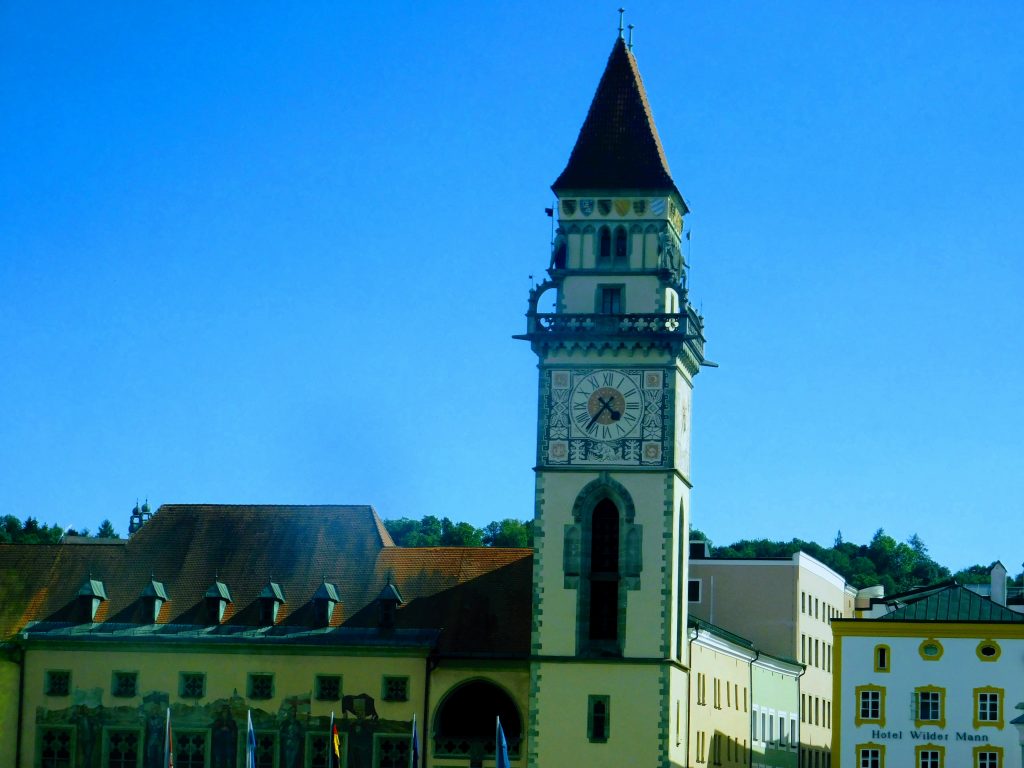
Nowadays, this is a university city, about a fifth of its 50,000 inhabitants are university students. Founded in 1973, the University of Passau is the youngest university in Bavaria, even although it has a centuries long history as the Institute for Catholic Studies.

Top Things to Do in Passau
A few years ago, before Covid-19, we took an amazing Viking River Cruise called “the Danube Walz”. Starting with a visit to Passau, we had a great time exploring the town. Here are our recommendations for your visit to Passau:
The world’s largest cathedral organ
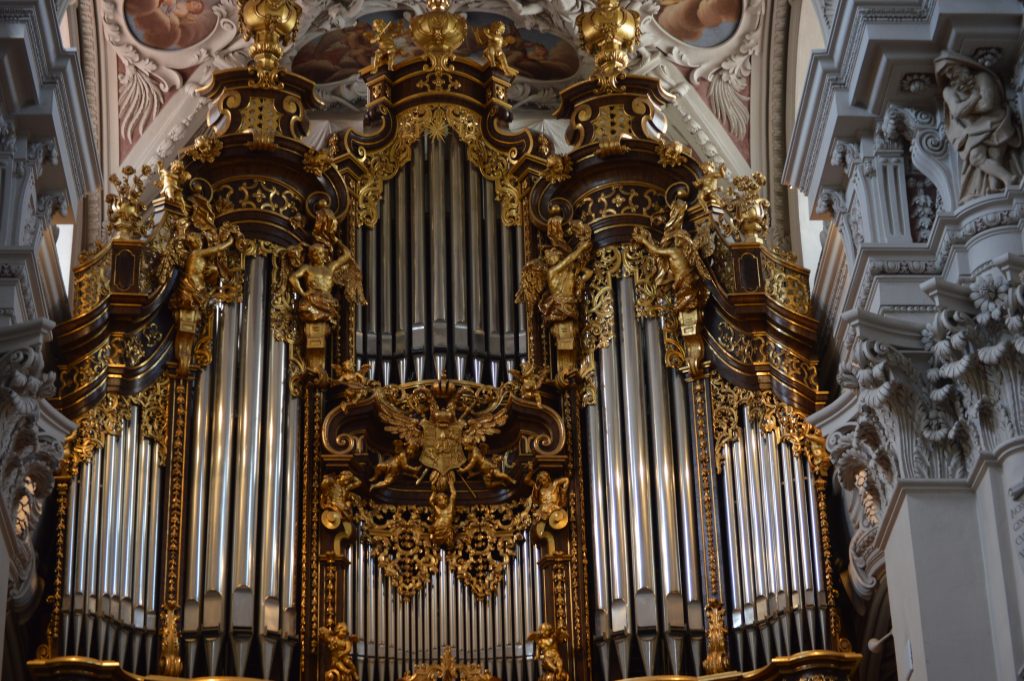
We enjoyed a concert in the St. Stephen’s cathedral. This organ has almost 18,000 pipes and 233 stops. Technically, there are five organs integrated together, which can be used individually or together. While you enjoy the concert, you can look around and marvel at the lavishly decorated cathedral. Don’t forget to look up and admire the ceiling. From the outside, you can see that the St. Stephen’s cathedral has green onion domes, making it look like a magical palace.
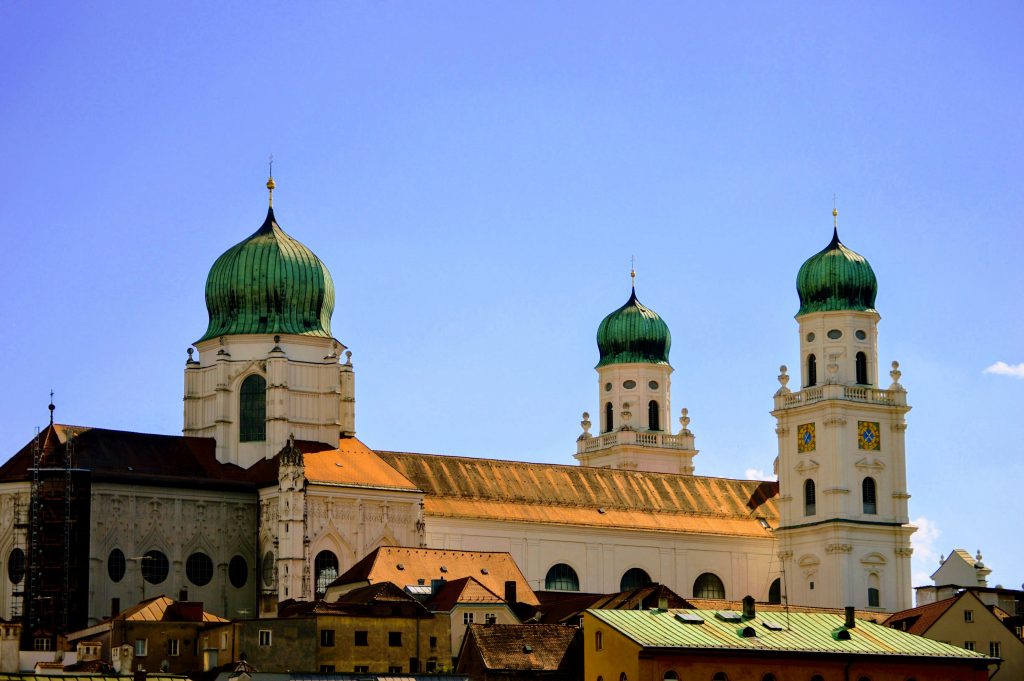
Die Höllgasse (a new way of going to hell)
We recommend strolling through a street named Höllgasse or Hell Street, so-called because of regular flooding because of being so close to the river. They market it to the tourists as Artists’ Alley, which admittedly sounds a lot better than Hell Street.
When you walk down the alley, you will notice high water marks on many of the buildings. Another interesting feature is the colored cobble stones. These cobblestones lead the ways to different shops. There are many artisans who sell their wares in this quaint alleyway.
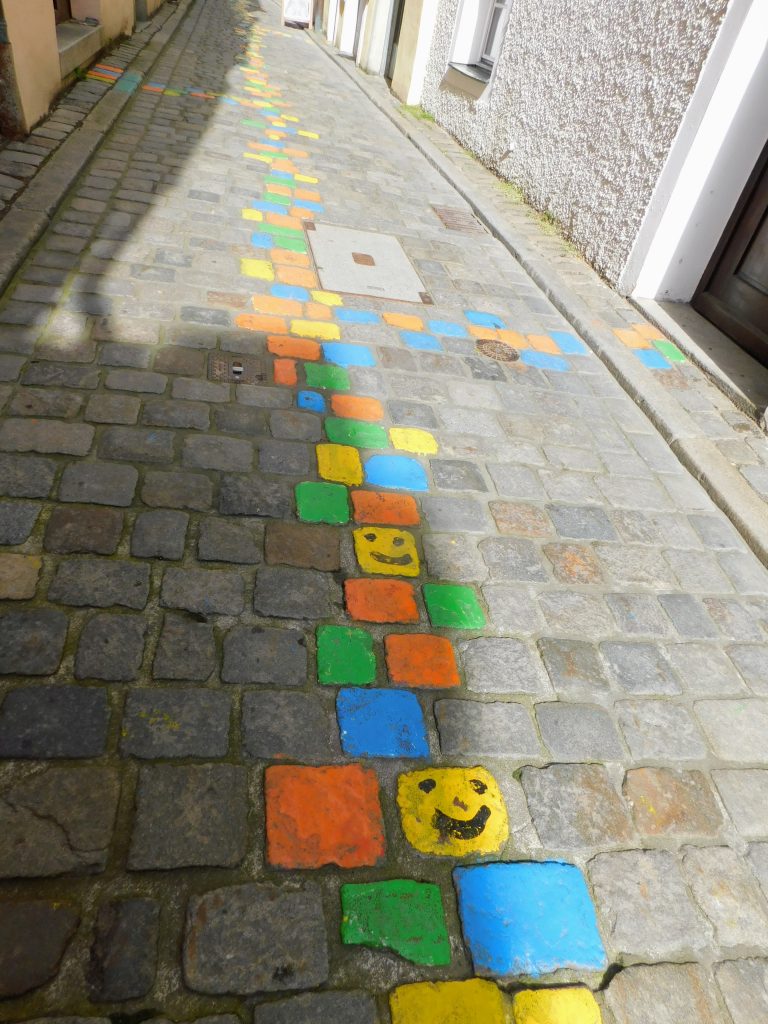
The Scharfrichterhaus (kind of creepy)
The Scharfrichterhaus is a bit morbid, but historically interesting. It is the executioner’s house, built circa 1200. Located on “Milk Street”, it was the official residence for the Scharfrichter (executioner). Because today we do not execute publicly anymore, it is now a jazz and cabaret stage on which artists do political cabaret.
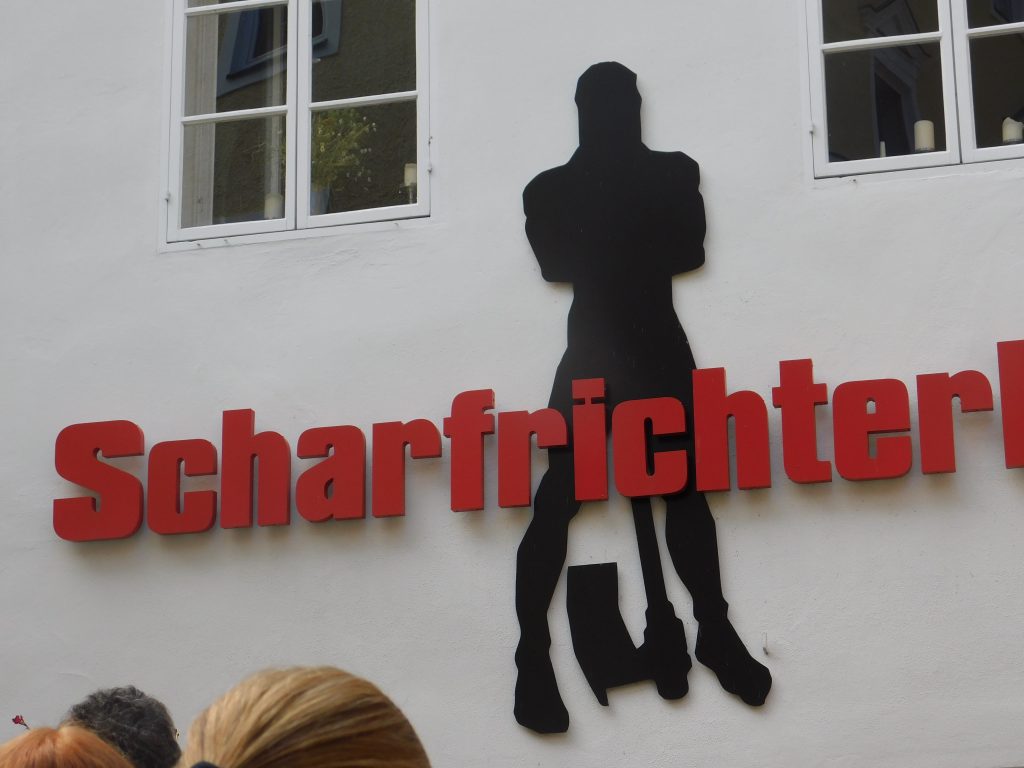
Die Altstad (where it all started)
A fire destroyed the old city center of Passau (Altstad in German) in the 1600s. They rebuilt most of the center in Baroque style, and you can walk around on the old cobblestones and feel like you are traveling back in time. Pay special attention to the ornate windows on many of the pastel colored buildings.
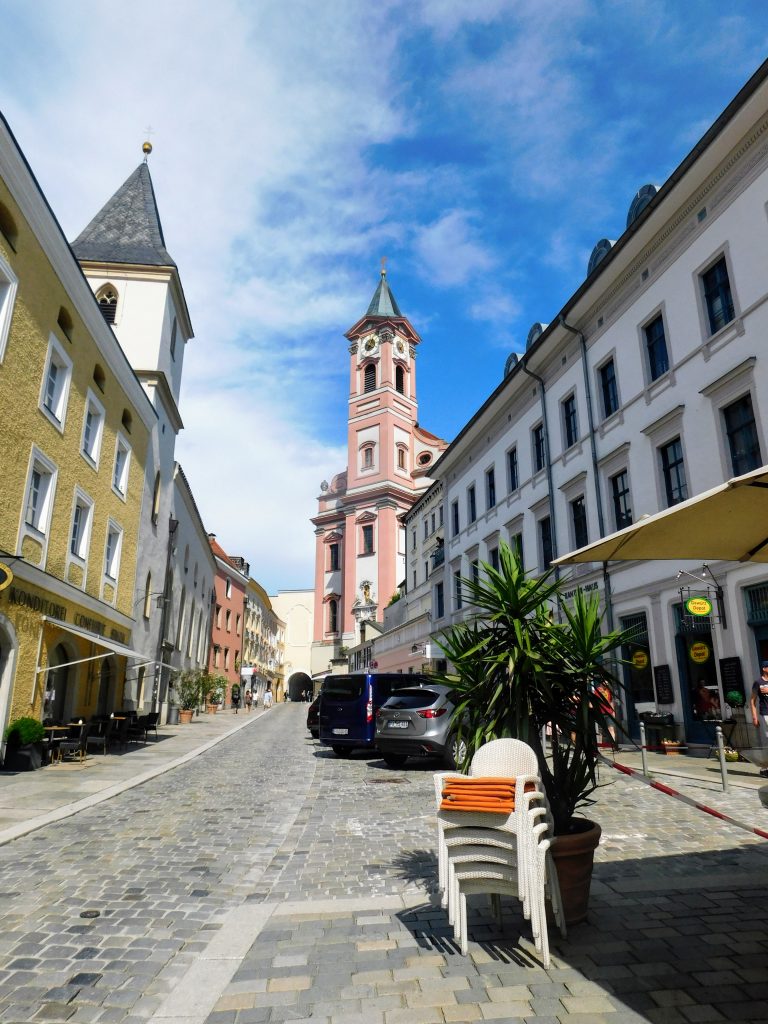
Drei-flüsse-Eck (scenic river walk)
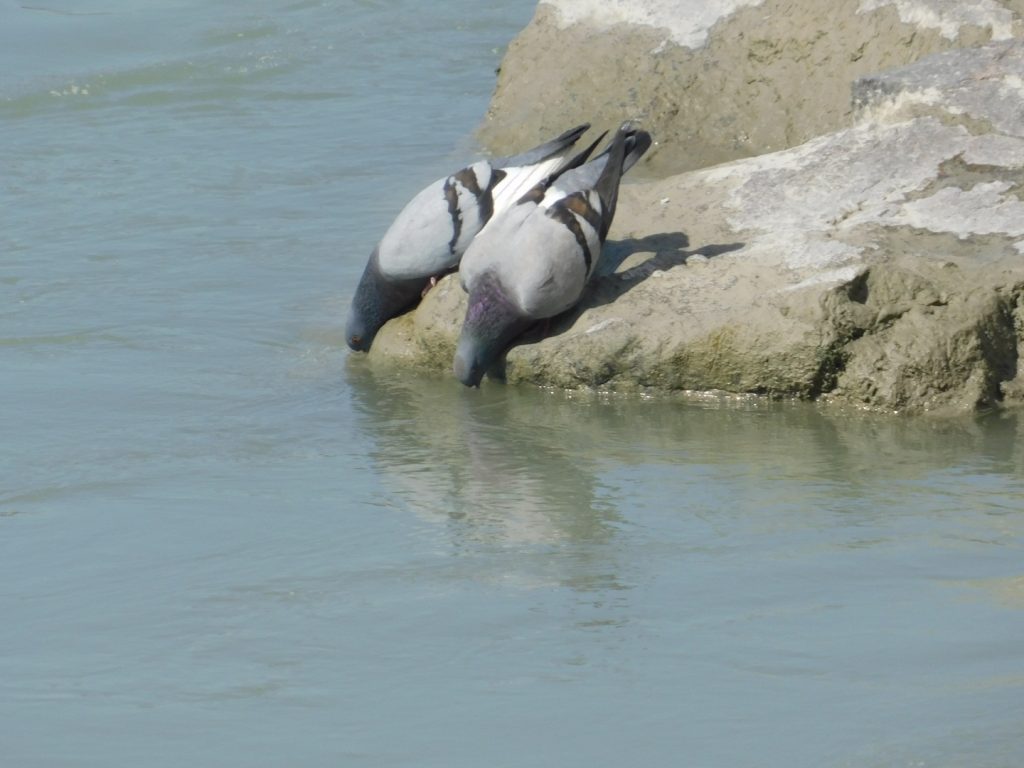
Literally, Drei-flüsse-eck means “The spot where three rivers meet”. When you visit this outlook, you can see the black Ilz, the green Inn and the blue Danube meet and notice the different colors of the water. We went there during our walking tour. It is a pleasant place to hang out and watch the world flow by. Pittsburgh has a similar park. ( on the Three Rivers Heritage Trail)
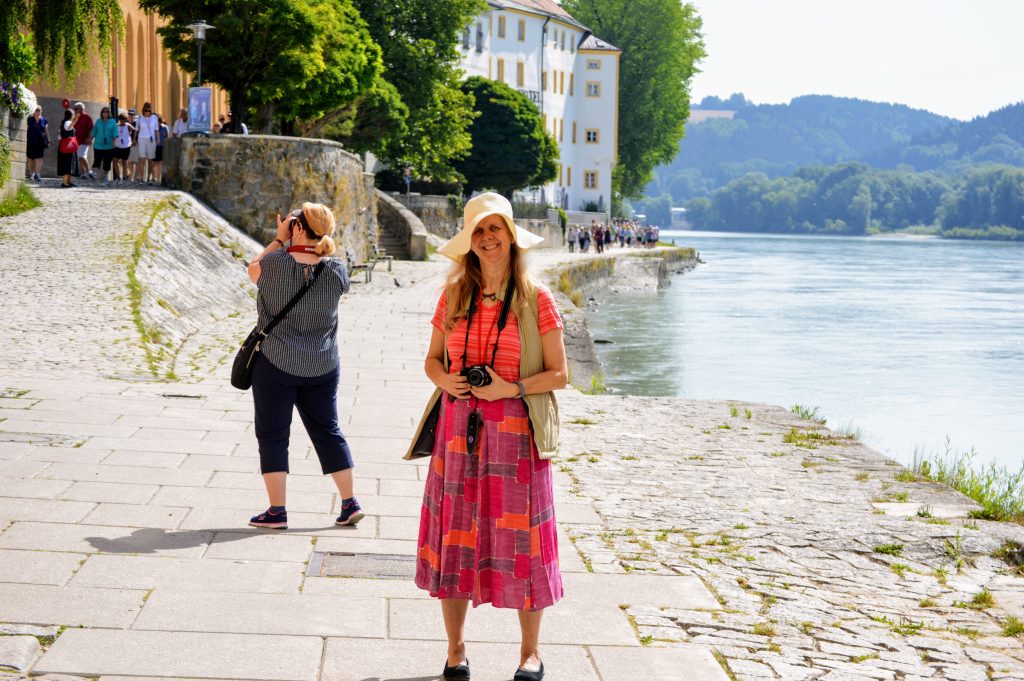

Schaibling Tower (14th century leftover of the salt trade)
On our visit to Passau we saw this fortified tower which was built in the 14th century. During those times, the river was heavily used to ship salt from Salzburg. Schaibling Tower was part of the old salt boat harbor. From there they would transport it over land to other locations. Now, it is definitely one of the famous landmarks of Passau you would want to visit on your trip. The tower is on the Inn Promenade, a pleasant walk along the river Inn.
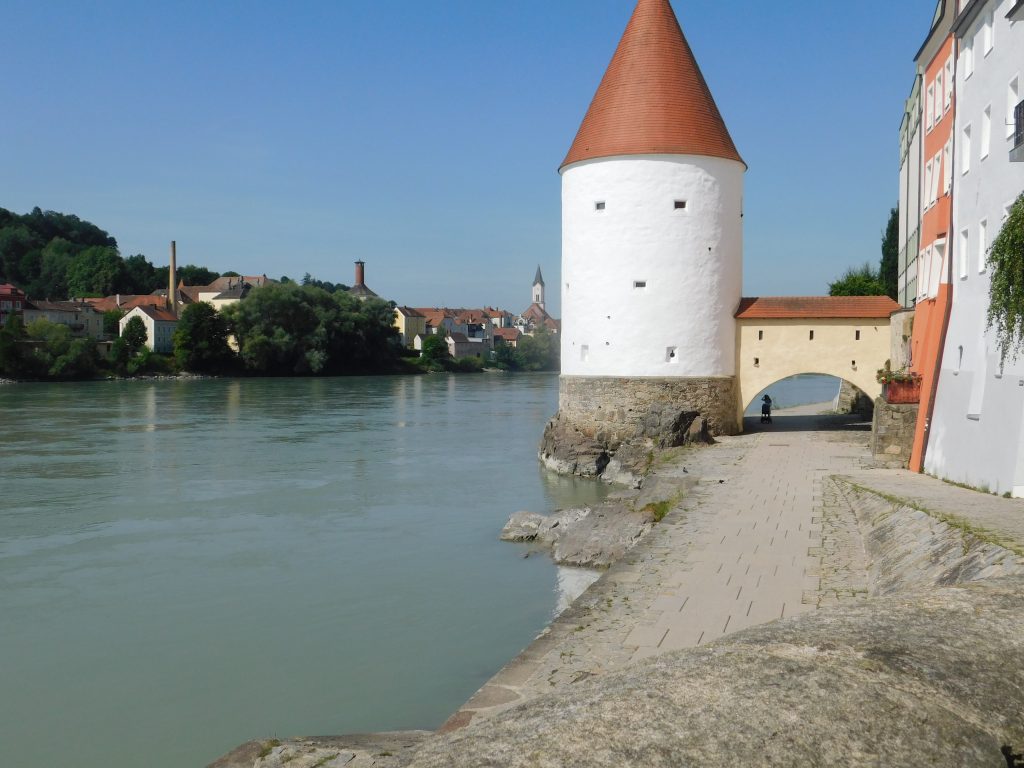
Conclusion Things To Do in Passau
When I started researching this article, and talked to my husband about the city of three rivers, he mentioned that Pittsburgh has the same nickname. It didn’t take long for us to discover the many interesting similarities and links between Passau and Pittsburgh.
Have you been to Passau? What were your favorite things to do in Passau? Have you been to Pittsburgh and noticed the strong German influence in that city? Or have you been to both and did you realize these connections? Please comment and let me know!
Other UNESCO World Heritage Sites You Should Visit
World Heritage Sites in the Americas
- Sian Ka’an Biosphere in Mexico: where the sun was born;
- The Everglades: both a UNESCO World Heritage Site and a Biosphere Reserve;
- The Statue of Liberty in New York City, USA;
- Take an Alaska cruise and visit Glacier Bay National Park;
- Go watch whales in Quebec City;
- Puerto Rico Does it Better! Old San Juan and fun facts about Puerto Rico
World Heritage Sites in Europe
- Paris around the Seine;
- Waldorf Astoria Amsterdam: right in the middle of the historic Canals District;
- Passau, Germany, often the start or end of a Danube river cruise;
- Matera, Italy: the oldest continually habituated place in the world, also called the City of Caves;
Other Useful Links
Passau
- Best Restaurants in Passau;
- Our Carpe Diem’s photo gallery Enjoy our Passau adventures;
- Cheap and fast transportation to Passau. How to get there. We were on our first Viking River Cruise, so Viking provided a bus from the Munich airport, about two hours away;
Pittsburgh
Pin Things To Do in Passau
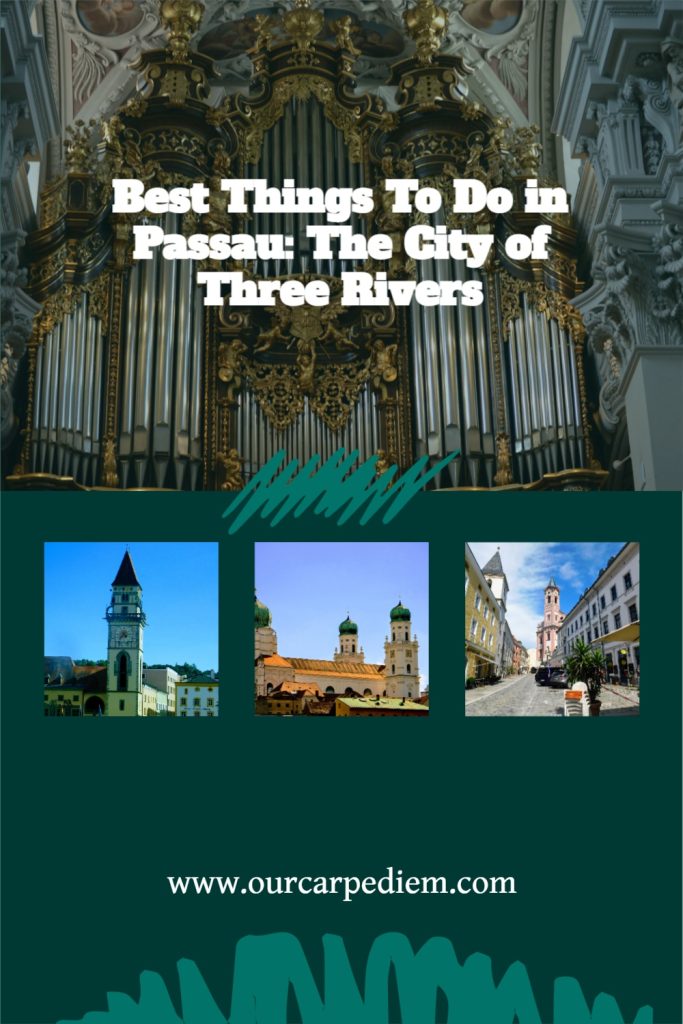

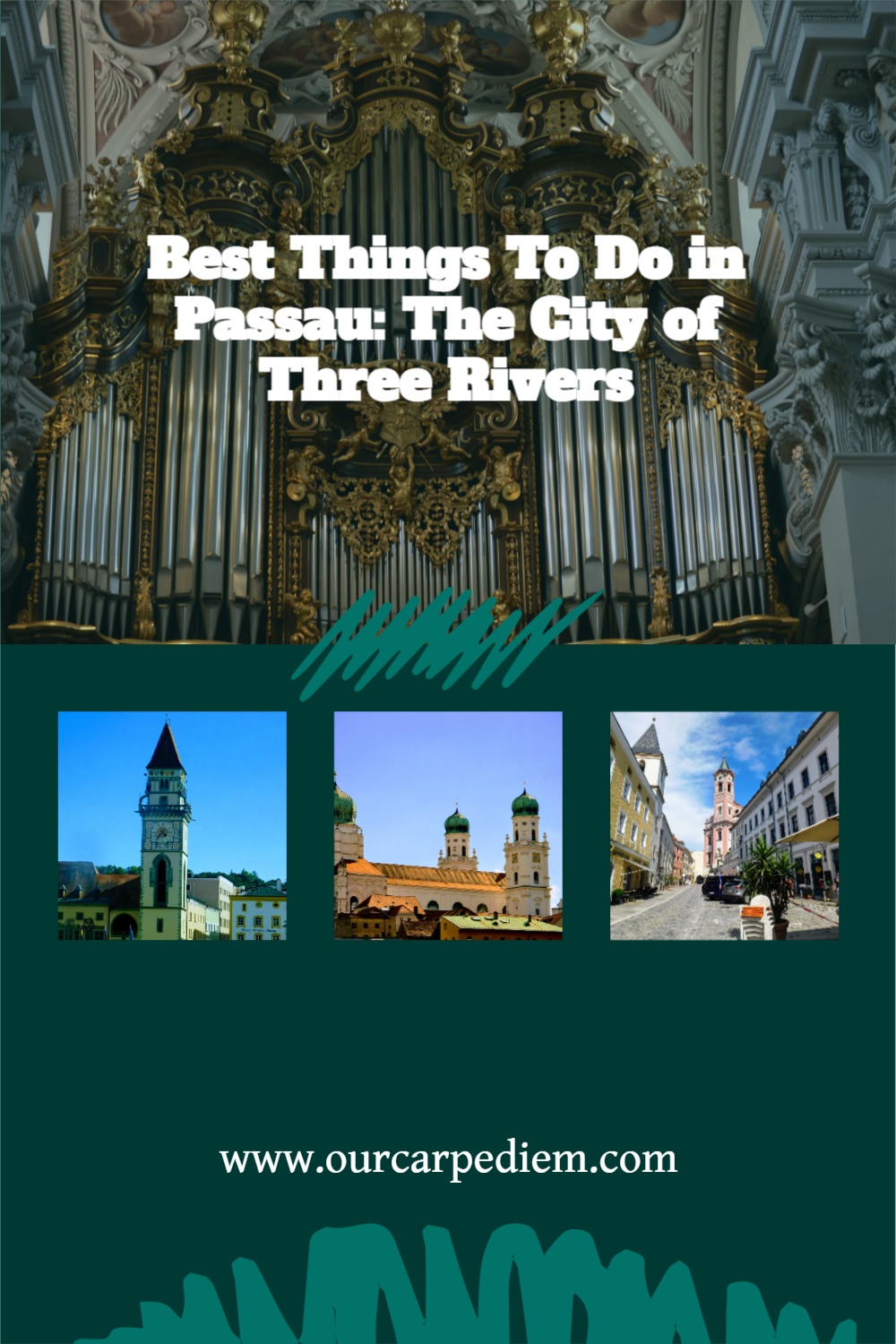

Comments
10 responses to “How to Explore Passau (Pittsburgh of Germany) with Ease and Enjoyment”
You would think Hell Street would have frequent fires, but flooding works too I guess.
Thank you, Melanie! Yup, I agree with you, but the people of Passau must have thought the flooding was hell enough, even without the fires 😀
How interesting! I’ve been to Pittsburgh a few times (my husband’s family live nearby), and we really enjoy all the things the city has to offer. I had no idea Germany had a similar city! Thanks for sharing!
Thank you, Poky! I still have never been to Pittsburgh, but after researching this post I really do want to go and check it out for myself!
Your photos look great and it sounds like you had a fab time! It’s made me want to get travelling!
Vicki | http://www.missviclb.co.uk
Thank you, MissVicLB ! Go for it! Travelling is good for the soul! Adventures await, Seize the day!
And then share your adventures with us on your blog.
Passau seems lovely! I love all the old architecture and the history. I never would have known the similarities with Pittsburgh!
Thank you, Laura. Yes, passau was amazing, if you get the opportunity to visit, you totally should!
The similarities with Pittsburgh were a surprise to me too.
Thanks for stopping by and commenting!
I totally had to read this just to see why it was called the Pittsburg of Germany! So interesting!!!
THank you for stopping by and commenting, Rootswings! I was very surprised about the similarities between the two cities, it was fun to write about it!